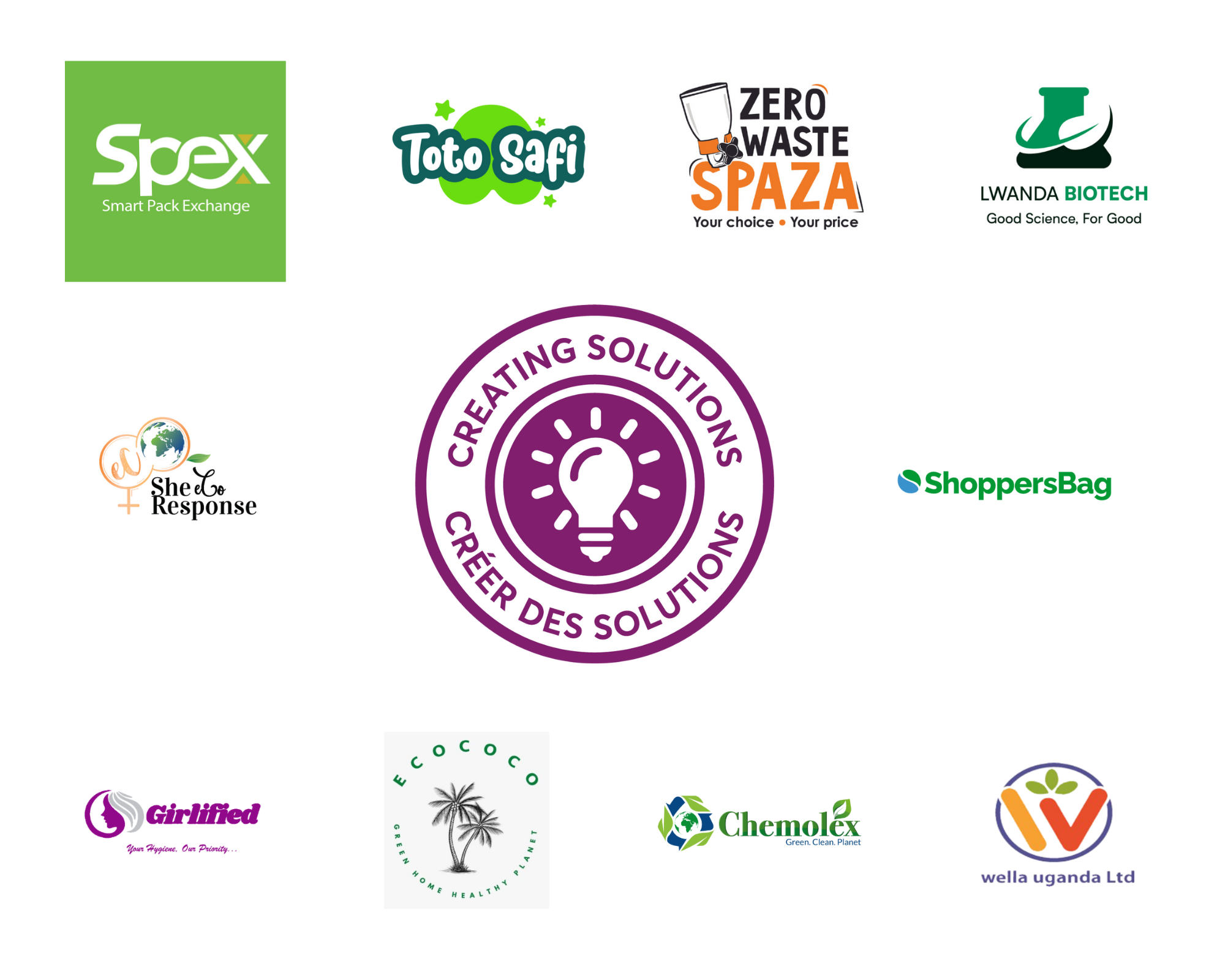The Afri-Plastics Challenge is now down to the wire. Ten teams of innovators from across sub-Saharan Africa have made it to the finals in strand 2 of the challenge named Creating Solutions, aimed at reducing plastic usage across the continent. The finalists will receive £75,000 to invest in and develop their ideas. Next year, a winner will take home a first prize of £750,000, with the runner up receiving £250,000 and third placed winning £100,000.
Across the continent lies a pool of innovative talent as exemplified by the regional distribution of the finalists, who were drawn from Rwanda, Ghana, Kenya, Nigeria and South Africa. They included a Rwandan organization Toto Safi, whose solution also named Toto Safi, is an app-based service that facilitates the reduction of single-use disposable diapers, a major source of land and marine pollution. Through this app, parents will be able to receive a fresh bundle of clean and sterilised cloth diapers at an affordable cost.
Also catching the judges’ eye and attention was ShoppersBag, a solution developed by a Nigerian organization known as Well of Science. Shoppersbags are re-usable, recyclable and biodegradable bags that allow people to get paid or earn rewards on every usage. Other contenders in the race include South Africa’s Regenize. Regenize’s Zero-Waste Spaza can plug into any existing spaza shop and enables it to become a zero-waste shop where their customers can shop without creating plastic waste. The customers will need to bring their containers to purchase goods supplied by Regenize and stored in secured food-safe containers. Besides reducing plastic waste, it will also enable customers to live a healthier lifestyle.

What’s next for the finalists?
The finalists in the second strand announced today are also being supported by a bespoke capacity-building portfolio of experts innovation, commercialisation, narrative-building, plastics to develop their innovative products that specifically reduce or eliminate plastic entering the value chain through ingenious and novel approaches.
The successful community-centered products and services have demonstrated a sustainable approach to reducing the reliance on plastic that also supports the empowerment of women and girls. The Afri-Plastics Challenge’s goal is that the development of the innovators’ solutions will encourage the creation of new, sustainable local enterprises, bringing economic opportunity to communities, while creating solutions with application across sub-Saharan Africa and around the world.
Please visit this page for the text in French. Veuillez visiter cette page pour le texte en français.
Click here to read this blog in French. Cliquez ici pour lire ce blog en français.
The Afri-Plastics Challenge reveals the 15 finalists of strand 1 & 25 semi-finalists for Strand 2.
Accelerating Growth: Meet the 15 Finalists for Strand 1!
These finalists have been selected from 30 semi-finalist teams announced in November 2021. Each has already received grants of £10,000 to grow their ideas and demonstrate their scalability in advance of judging. The 15 finalists will now receive a further £100,000 each to advance their solutions to plastic waste management. In addition to financial support, they will receive expert advice and capacity building in the fields of plastic management, human-centered design, market readiness and communications.
Three winners will be announced in March 2023 – first place will be awarded £1 million, second place will be awarded £750,000 and third place will be awarded £500,000.

Creating Solutions: Meeting the 25 Semi-Finalists for Strand 2!
In addition to the 15 finalists in the Accelerating Growth strand, the Afri-Plastics Challenge has selected the 25 semi-finalists in the Creating Solutions strand.
Each semi-finalist will be supported with a £25,000 grant and additional expert support to develop and validate their solutions. From these semi-finalists, 10 finalists will be selected in June 2022.
Solutions through to the semi-finals of Strand 2 come from across sub-Saharan Africa, with many developing plant- and nature-based alternatives to plastics in everything from food packaging to construction materials. Several semi-finalists are developing sustainable and plastic-free sanitary products for women and others are working on safe drinking water alternatives that don’t rely on single-use plastic bottles.
